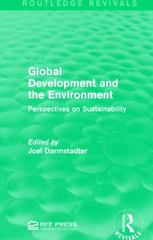Economics.
Please provide short answers and explanation.
Thank you.
1. Scope of public finance includes : (a) Public revenue (b) Public debt (c) Public expenditure (d) All of these 2. Public Authorities Include: (a) Central Government (b) State Government (c) Local Government (d) All of these 3. Which is the main point on the basis of which public finance can be separated from private finance: (a) Price policy (b) Borrowings (c) Secrecy (d) Elasticity in income 4. The principle of Maximum Social Advantage have been suggested by (a) Pigou (b) Dalton (c) Musgrave (d) Adam Smith 5. In the following which is the characterstic of a tax (a) Compulsory (b) optional (c) forced (d) nationality 6. Which is the main objective of a tax: (a) Increase in consumption (b) increase in production (c) Raising public revenue (d) reduction in capital formation 7. Among the following canons of taxation which one has been given by Adam Smith: (a) Canon of Uniformity (b) Canon of productivity (c) canon of diversity (d) canon of equity 8. The Indian tax system is: (a) Proportional (b) Progressive (c) Regressive (d) Degressive 9. The burden of direct taxes is borne by : 42 Snipping Tool (a) Rich person (b) poor person (c) on whom it is levied (d) none of these 10. Indirect taxes have an element of : (a) Equitable (b) certainity (c) economical (d) encourage honesty 11. Direct taxes have the element of : (a) Evasion (b) convenient (c) progressive (d) economy 12. In proportional tax system, the rates of tax remain: (a) Constant (B) increasing (c) decreasing (d) zero 13. Expenditure Tax for India was recommended by: (a) Kaldor (b) Colin Clarke (c) Adam Smith (d) Adolph Wagnor 14. Corporate Income tax is the tax levied on: (a) Corporations (b) Municipalities (c) Co -operative societies (d) Companies 15. Which of the following is the major source of revenue in India: (a) Direct tax (b) Capital Levy (c) Grants in aid (d) Indirect tax 16. Which of the following is not a Commodity Tax: (a) Excise duty (b) Customs Duty (c) Coporation Tax (d) Octroi 17. A duty levied on goods when they entering a town (a) Income tax (b) Octroi (c) Agricultural tax (d) Professional tax 18. Special Assessment means: (a) A tax on special benefits (b) General tax on all people (c) A periodical tax (d) Gift tax 19. Non-exclusion principle is related to: (a) Private goods (b) Public goods (c) Merit goods (d) Mixed goods22. Who is the father of Public Finance: (a) Dalton (b) Pigou (c) Smith (d) Musgrave 23. Incidence of tax means: (a) Direct money burden (b) indirect money burden (c) actual tax burden (d) none of these 24. Which is the tax shifting (a) To bear the tax burden himself (b) to shift the tax burden on others 9c) to bear some part of the tax himself and shift the rest on others (d) none of these 25. The equity principle of taxation was propounded by: A) Adam Smith B) Dalton C) J.B. Say D) Marshall 26. "The government which taxes the least is the best", is the belief of: A) Mercantilists B) Physiocrates C) Modern D) Classical 27. According to Laffer, when the tax rate is 100 per cent , the tax revenuewill be: A) 100% B) 50% C) Zero D) 10% 28. Incidence of a tax refers to the- ----burden of tax: A) Initial B) Ultimate C) Intermediate D) None 29. In the case of regressive tax, the rate of tax--- -----as income increases: A) increases Bjremains constant C) Decreases D) None 30. Advolorum duties are levied on: A] Length B) Weight C) Utilities D) Value 31. Tax avoidance is: A) Illegitimate B) Legitimate C) Punishable D) None 32. The VAT was first introduced in: A) India B) Britain C) USA D) France 33. Customs duties are imposed on commodities as they cross: A) State boundaries B) District boundaries C) National boundaries D) Muncipal boundaries 34. Contra-cyclical fiscal policy was popularised by: A) Adam Smith B) Dalton C) J.B. Say D) Keynes 35. Deficit financing as a tool of fiscal policy was suggested by: A) Keynes B) Dalton C) J.B. Say D) Marshall 36. Keynes popularised: A) Monetary policy B) Fiscal Policy C) Income policy D) Price policy 37. A budget where there is excess of expenditure over revenue is called: A) Surplus B) Deficit C) Balanced D) Zero-based 38. The balanced budget principle was advocated by: A) Keynesians B) Mercantilists C) Classical school D) Neo-Classical school 39. Which one of the following is not a tax base? A) Income B) wealth C) Utility D) Consumption








